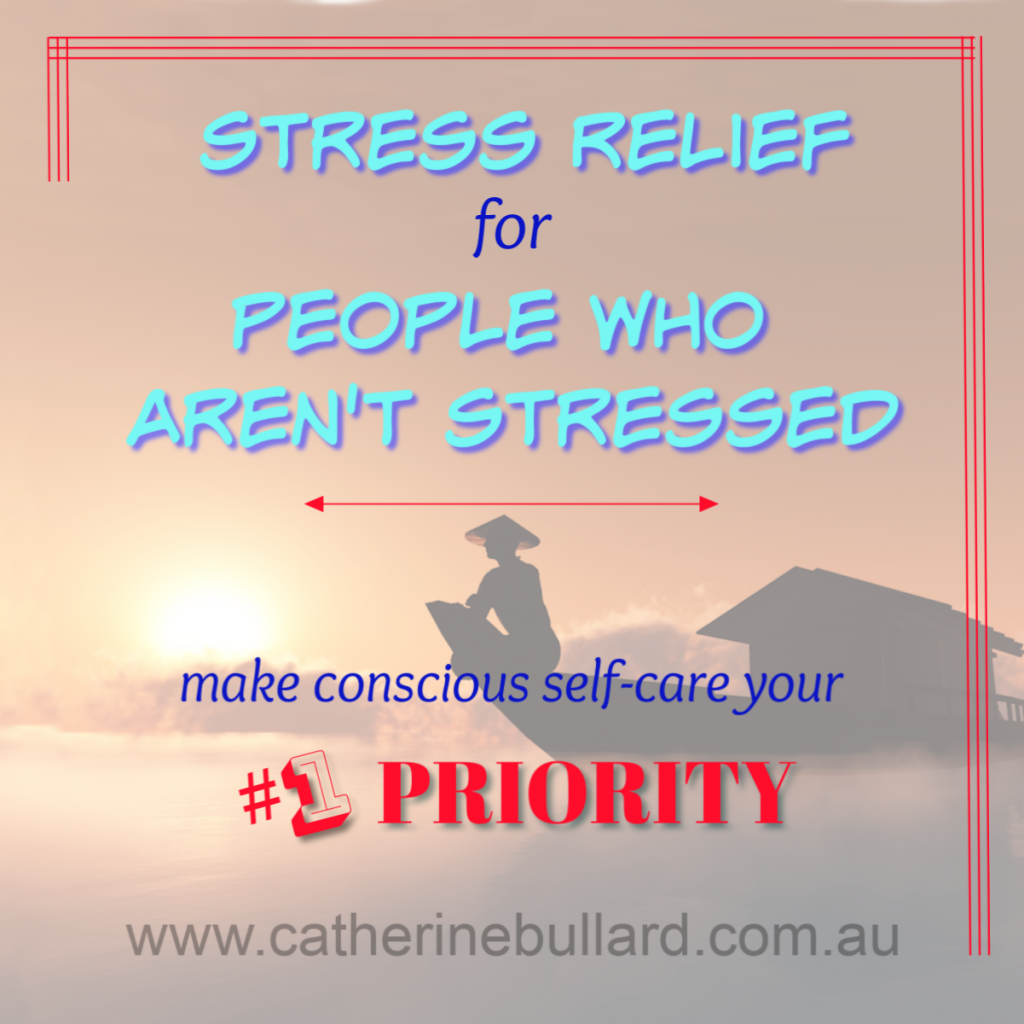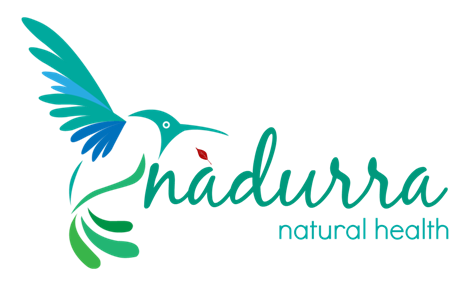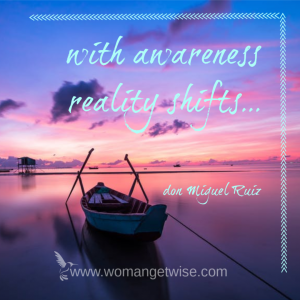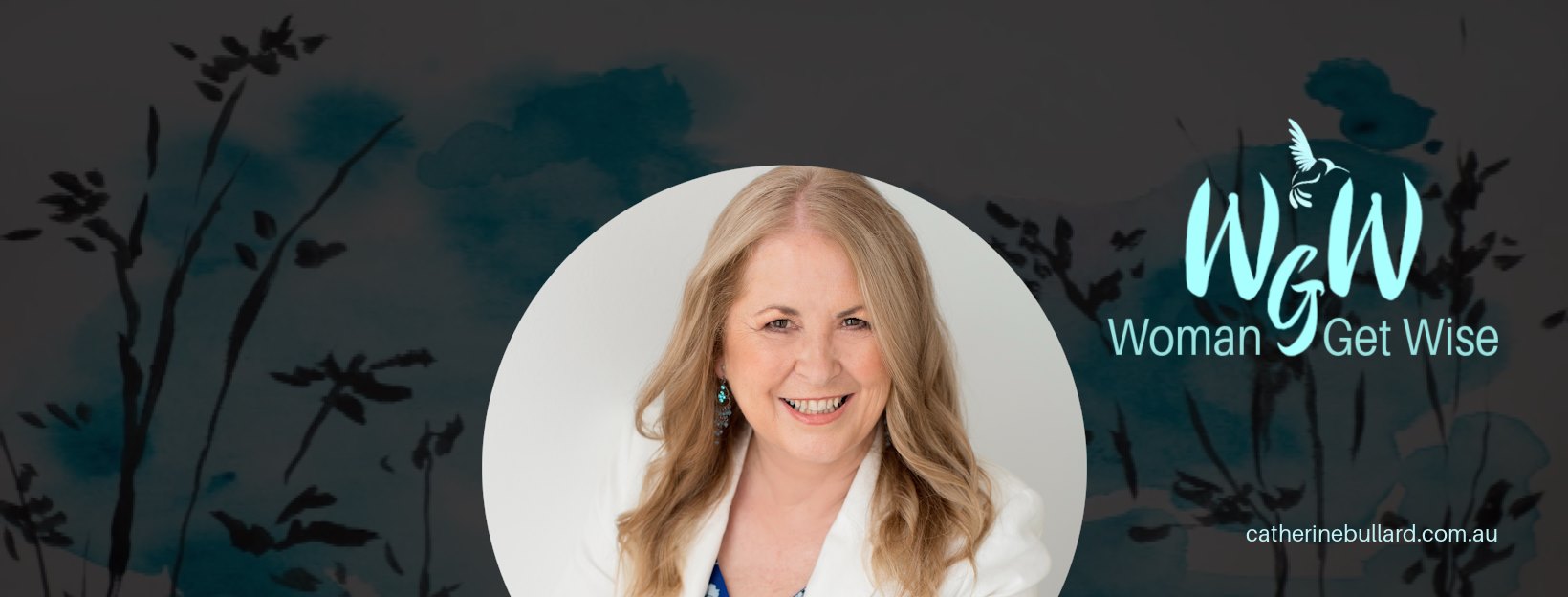December is the hyper-stress time of the year. With so much extra pressure it’s essential to practice Conscious Self-Care. Practising stress relief techniques to reduce the negative effects on your body, mind and emotions is one of the most crucial ways to achieve this.
It’s unrealistic to expect to be stress free in today’s world. Stress is a fact of life. But its impact on your wellness, on all levels, is completely up to you. Only you can create the changes needed to reduce your stress levels.

So much of everyday life has harmful effects that most people have stopped taking notice. From foods bathed in pesticides, through pollution, hormones in plastics, electromagnetic radiation and so on, we’re swimming in a sea of toxins. As it’s impossible to avoid them all, it’s essential to consciously choose how you interact with them.
Anxiety And Stress
You don’t need to feel anxious to be stressed. You could be calm, chilling on Netflix and yet under high stress from electromagnetic radiation from your technological device.
Ongoing chronic stress is now considered the number one hurdle to good health.
Your cells are under constant stress. Which means, unless you live in isolation like a zen monk, they’re constantly affected by the stress hormone cortisol.
Stress is such an normal part of people’s lives that it’s often taken for granted. At best, stressors are accepted as a necessary evil of modern life, at worst completely overlooked.
Stressors can be physical, such as illness or violence, extreme heat or noisy neighbours. They can result from lifestyle, such as work stress, alcohol abuse or poor sleep habits. Or they can be emotional. These can be the most complex and have the greatest impact.
Sometimes anxiety develops as a result of ongoing, even low-grade stress.
- Blood pressure increases
- Muscles tense
- Breathing rate increases
- Heart rate increases
- Brain waves slow
These are all signs of the ‘fight-or-flight’ response kicking in. They’re a real problem when they’re ongoing and lead to:
- Weight Gain – Stress alters fat distribution, depositing it around the midriff where it poses the greatest health danger
- Faster Ageing – A study found chronically stressed mothers aged faster. Another study linked prenatal exposure to stress via mother to accelerated ageing
- Affects Brain Cells – A Stanford University study found brain cells shrink in those who are chronically stressed
- Serious Disease – Stress increases the incidence of free radicals which lead to the development of serious chronic disease
Recognise Stress
Anxiety can be the result of stress. But not everyone who’s stressed is anxious. Stressed people can appear very calm. So it’s important to recognise body cues. When you can recognise the signs in your body you can reverse them.
Do you experience any of these signs that you’re stressed?
• Neck’s tight and stiff, headache at the base of your skull, often called a tension headache
• Shoulders tighten as does upper and lower back
• Chest wall feels constricted, breathing is shallow
• A feeling of a tight ball or knot in your belly
• Jaw clenches, forehead tightens, as do lips
• Fingers feel tight, hands clench
• Stress is easily observed – shoulders hunch, head drops, face clenches and you may wear a defeated air
You may even experience more serious problems including:
- palpitations
- stomach upsets
- sleep problems
- impotence
- reduced sex drive
- raised blood pressure or stroke or heart attack
Perhaps most importantly, stress leads to an increase in free radicals throughout your body. Free radicals lead to inflammation and are the forerunner of serious chronic and autoimmune diseases such as cancer, SLE lupus, rheumatoid arthritis, other autoimmune disorders, ageing, cataract, cardiovascular and neurodegenerative diseases.
Your De-stress Tool Kit
It can be virtually impossible to eliminate ongoing, underlying stresses from your life. But simple techniques for times of increased stress can help you feel better in moments. Reducing your stress response immediately lowers stress hormone release. With a few crisis-control tools you can restore your sense of wellbeing and cope in difficult situations.
We’re all individual.
Some techniques will work better for you than others. Try any techniques you come across, you never know which will work for you. Give them all a fair try, even strange ones. It’s likely you’ll need to combine more than one technique. So watch for any improvement and don’t reject anything if it’s only partially helpful.
This is important. Learn the technique before you’re in a stressful situation. Memorise and practice it. You must be able to use the skills automatically. Most important, don’t give up – stress can make you restless so you won’t stick things out.
There are many ways to manage stress symptoms. Acupressure, massage and diet are some of the better known. Flower essences and homeopathic remedies are excellent and very effective. Herbals in many forms. Emotional Freedom Technique (EFT).
But there are also simple techniques and practices that you can do wherever you happen to be, right in the moment you need help.
Simple Conscious Stress Relief
Relax
When your muscles are tense you’re often not even aware of it. This very basic, simple technique helps release tension.
Sit, stand or lie. Tense up one set of muscles in your foot as tight as you can. (You could start with just your toe muscles). Then let them go so they’re quite limp. The contrast between the two states shows you what ‘relaxed’ actually feels like. Concentrate on that feeling as you then tense and relax the other muscle groups in your body – your toes, feet, legs, buttocks, back, abdomen, hands, arms right through to your head. Pay particular attention to your jaw and forehead.
Breathe
Ninety percent of people breathe inefficiently. Consciously controlling your breathing is one of the simplest and most effective ways to control anxiety and stressful feelings. And it reduces the effect of stress on your body.
Find somewhere quiet, clear your mind and start breathing deeply into your abdomen. Place your hand on your belly, you should feel it rise and fall. Breathe slowly and don’t raise your shoulders.
If you struggle, try to breathe as you count backwards from fifty. Breathe in on ‘fifty’, out on forty-nine and so on. Keep your mind focused on synchronising your breath with the numbers to slow down your breathing and force yourself to breathe deeper.
Read more about this technique and how to make effective breathing a normal, unconscious part of your life here – “Mastering The Breath Of Life”.
Flower Essences
Flower essences are excellent for releasing stress.
I prefer Australian Bush Flower Essences. While a personalised selection has the deepest effect, combinations are excellent to carry you through the moment.
‘Calm and Clear Essence’ promotes clarity, calm and peace. Use when you’re worried, rushed and impatient. It’s excellent to relax and wind down.
‘Emergency Essence’ has a calming effect during a crisis and is excellent for any emotional upset. It helps you cope when you feel panic, fear or distress.
Stretch
Simple but very calming! Do it as slowly and gracefully as you can. Basically there are three co-ordinated actions involved:
- Controlling your breath
- Raising your hands and arms
- Stretching your whole body from toes to fingertips
Stand. Let your arms, wrist and fingers go limp. Bend your knees slightly, entwine your hands loosely and turn your palms upward.
Slowly breathe in. Raise your hands towards your mouth and start to straighten your legs.
Slowly breathe out, turn your palms outward and stretch your body. Slowly exhale totally, reach your arms up, face your palms to the ceiling. Stand on your toes.
Now reverse the action
Repeat at least five times, slowly. Take a few minutes afterwards to relax and do nothing.
Affirmations
Your subconscious is a powerful force. Affirmations tap into your subconscious and are extremely effective if they’re worded well and used routinely.
Given the complexity and impact of emotional stress, affirmations are useful. Your subconscious cannot tell the difference between what’s real and what isn’t so it directs according to what you tell it. If your thoughts are always negative – you can’t cope or have no money, that’s what your subconscious believes. If they’re positive, it believes that.
The exact words you use to form affirmations are very important and can make or break the effectiveness.
Keep your statements in the present tense, as if they already exist. “I want…”, “I can…” or “I will” relate to the future and aren’t as powerful as “I am” or “I (do)” which relate to the present.
It’s important the affirmations become a regular part of your day. So consider how you’ll integrate them into your life.
Visualise
If you’re a visual person imagining a calm scene helps because it redirects your focus. Close your eyes and choose an image that reflects how you’d like to feel, perhaps an idyllic tropical island or a peaceful waterfall. Next imagine this image on a big screen in your mind.
Keeping your eyes closed ‘examine’ the image – the long stretch of beach, the light dancing on the water as it falls over rocks.
When it’s clear, step inside and see yourself in the scene as if you’re really there. Notice what you’re wearing, what you hear, smell. Feel the sand or grass, the breeze in your hair.
Once you really feel part of the scene, turn up the ‘volume’. As everything around you becomes brighter and louder and your physical feelings more intense, you become calm and relaxed almost immediately, as if you really were there. Relax, keeping the calm with you.
Release
One of the most common symptoms of stress is a clenched jaw and clenched teeth. Releasing the jaw is a simple way to release the tension of stress.
First become aware of the tension in your jaw. Clench tighter, then release it.
Lightly press your tongue against the roof of your mouth behind your teeth.
Part your lips slightly and feel your jaw relax.
Repeat several times a day.
Eat
If all else fails small amounts of DARK chocolate helps calm anxiety. The theobromine in chocolate helps lift your mood and the tryptophan in dark chocolate improves your serotonin levels, which contributes to feelings of wellbeing. Many with anxiety have low levels of serotonin.
Try out these techniques when you’re not stressed. Get to know them so you can move straight into doing them whenever you need, without having to think them through. Having to remember only adds to your stress.
Do you have a stress relief technique that really helps when you’re feeling stressed?
Leave a comment below and tell us about it.
WORK WITH ME
Would you love to reduce stress as you develop deep Self-Care practices to keep you grounded and energised, and your heart singing?
Join me on the Indochine Queen Women’s Retreat in Vietnam in March 2019, where I’ll share the Vietnam I love so much with you as you relax and renew ‘in the pause’, away from the pressure of everyday life.
Find all the details here

Disclaimer
All information and opinions presented here are for information purposes only and are not intended as a substitute for professional advice offered during a consultation. Please consult with your health care provider before following any of the treatment suggested on this site, particularly if you have an ongoing health issue.


